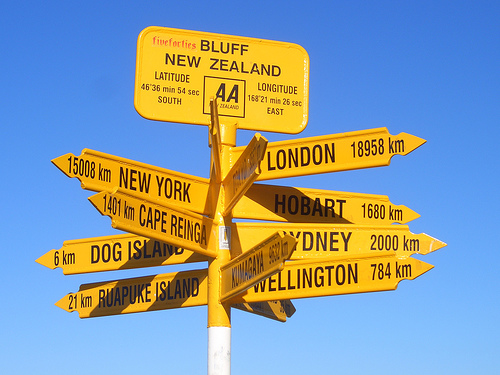
Preparing for a gap year can be a daunting task, with a seemingly endless list of things to think about when planning a lengthy trip abroad. One way to tackle it is to break your preparation up into more manageable segments, focusing on a single task at a time and making sure that you have all the essentials covered.
To help you with this, below is a list of some of the most important things you need to think about before going away on your gap year.
Budgeting
The first thing to do is to figure out how much you have to spend and what you can afford to do with this money. It may be that you have to sacrifice some travel time to work longer to save up for your ideal trip, or reconsider your itinerary so it fits in with the funds you currently have available. Figure out what the cost of the main expenses such as flights and accommodation are likely to be, as well as everyday smaller purchases such as food, train tickets etc. You’ll almost always end up spending more than you think, so make sure you leave a generous reserve to fall back on if need be.
Deciding where to go
Of course, for many part of the fun of travelling is going where the wind takes you to some extent and there’s certainly no need to plan out in advance what you’re going to do and where you’ll be for every day of your trip. However, planning a rough route will help you prepare for anything you may have to do in advance – such as organising visas or booking transportation – while compiling a ‘bucket list’ of all the things you want to see while away will help to make sure you don’t miss out on any of these.
Travel and accommodation
To an extent, you can leave some travel arrangements such as train tickets or even internal flights until you get there, so as not to commit yourself to a specific itinerary. But it’s a good idea to research fares and timetables in advance as well as book outbound and return flights home. Keep costs down by checking for cheap flights with low-cost airlines like this one and take advantage of deals such as rail passes and discount fares for young travellers.
When it comes to accommodation, again a lot of this can be left until you arrive. But make sure you have somewhere to stay for your first few days away and that if you’re going to any remote destinations that you book up well in advance. Hostels will usually be most affordable, but you should use travel guides and the internet to find the best ones for each place you’re going.
Visas and vaccinations
It may sound obvious, but it’s amazing how easy it is to forget to take care of basic things such as making sure your passport hasn’t expired and that you have all the visas you’ll need for each country you’re going to.
You should also talk to your GP several weeks before you go about any vaccinations you may need or medicine you might need to take for your trip.
Packing
Packing for a gap year is an art not a science and the trick is to make sure you take everything you need without giving yourself too much to carry. However, only you will be able to decide what is worth taking and what is not. Think about what clothing you’re likely to need, making sure you have something suitable for both hot and cold weather as well as something waterproof.
Also think about what easy-to-overlook extras you might need to bring. For example, how will you access your money while you are away – travellers’ cheques, pre-paid cash cards and bank cards are all options – and is it worth investing in an international SIM card so you can call home while abroad?